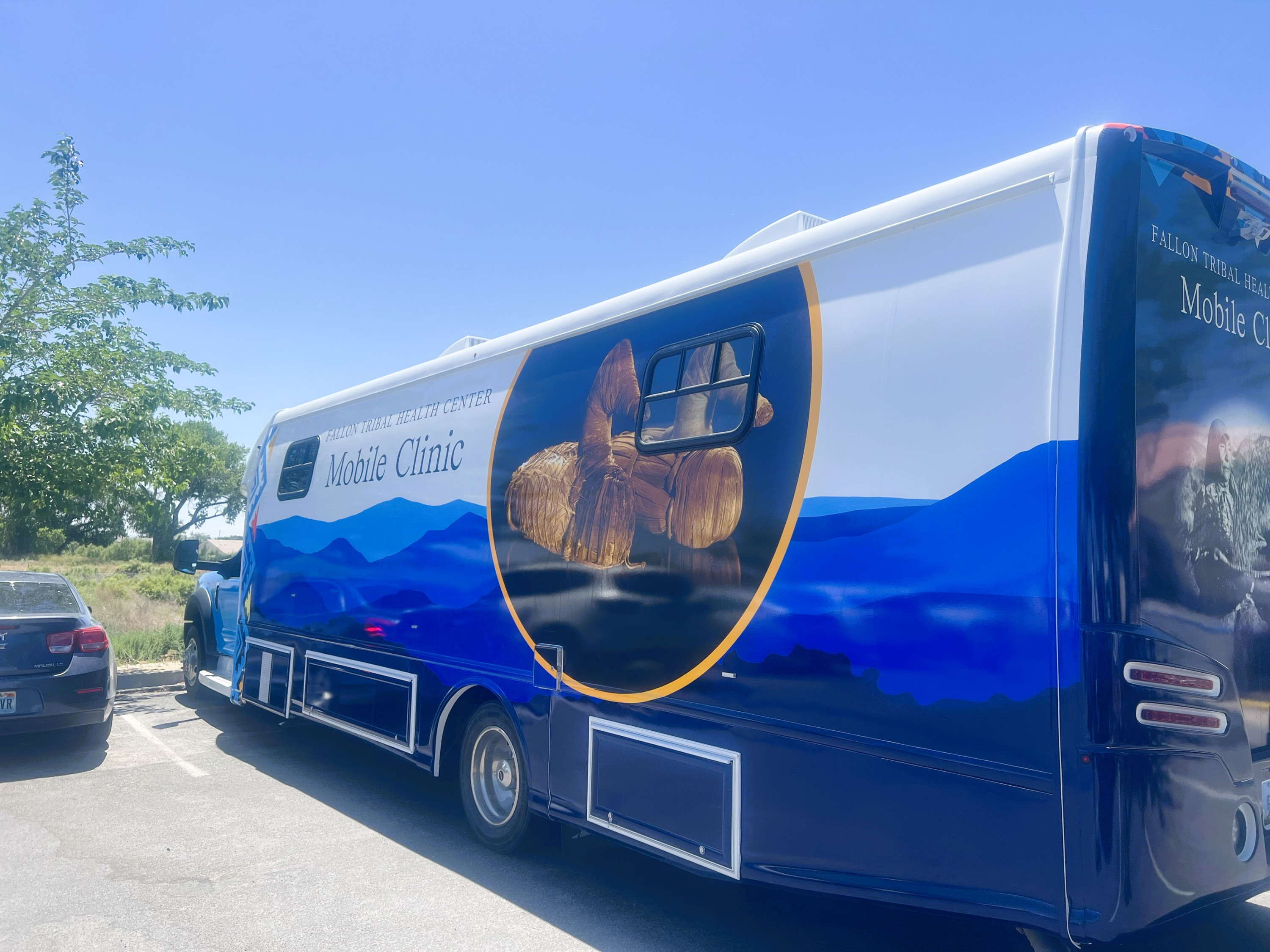
June 10 was a momentous day for the Fallon Paiute-Shoshone Tribe (FPST) and even more so for the Tribal Health Clinic. In an outdoor celebration and ribbon-cutting event, tribal members and representatives from the City of Fallon, the U.S. Department of Agriculture (USDA), the State of Nevada, and the U.S. Senate were introduced to the newly commissioned Mobile Health Clinic.
This new modern miracle of healthcare technology will help bring much-needed healthcare and health-related resources and services to some of the state’s most underserved and remote communities. While it may have looked like a posh rodeo rig before its custom wrap and paint job, as Fallon Paiute-Shoshone Tribal Chairwoman Cathi Williams-Tuni observed in jest, it is health and healing on wheels.
Spokesman and Tribal Health Center Director John Pishion introduced attendees to tribal elder Thaila Dick, who opened the ceremony in prayer, spoken in her native tongue, followed by a tribal song presentation with ceremonial drums.
Pishion shared that through a USDA rural development grant, the FPST was able to put valuable resources to work and get a mobile clinic that now serves not only the Fallon Tribe but the Lovelock Paiute Tribe and the Yumba Shoshone Tribe – one of the most remote tribal communities in the state. “Now we can offer healthcare, not just within the four walls,” said Pishion. “Now we can go into the communities… and help the Native American people.”
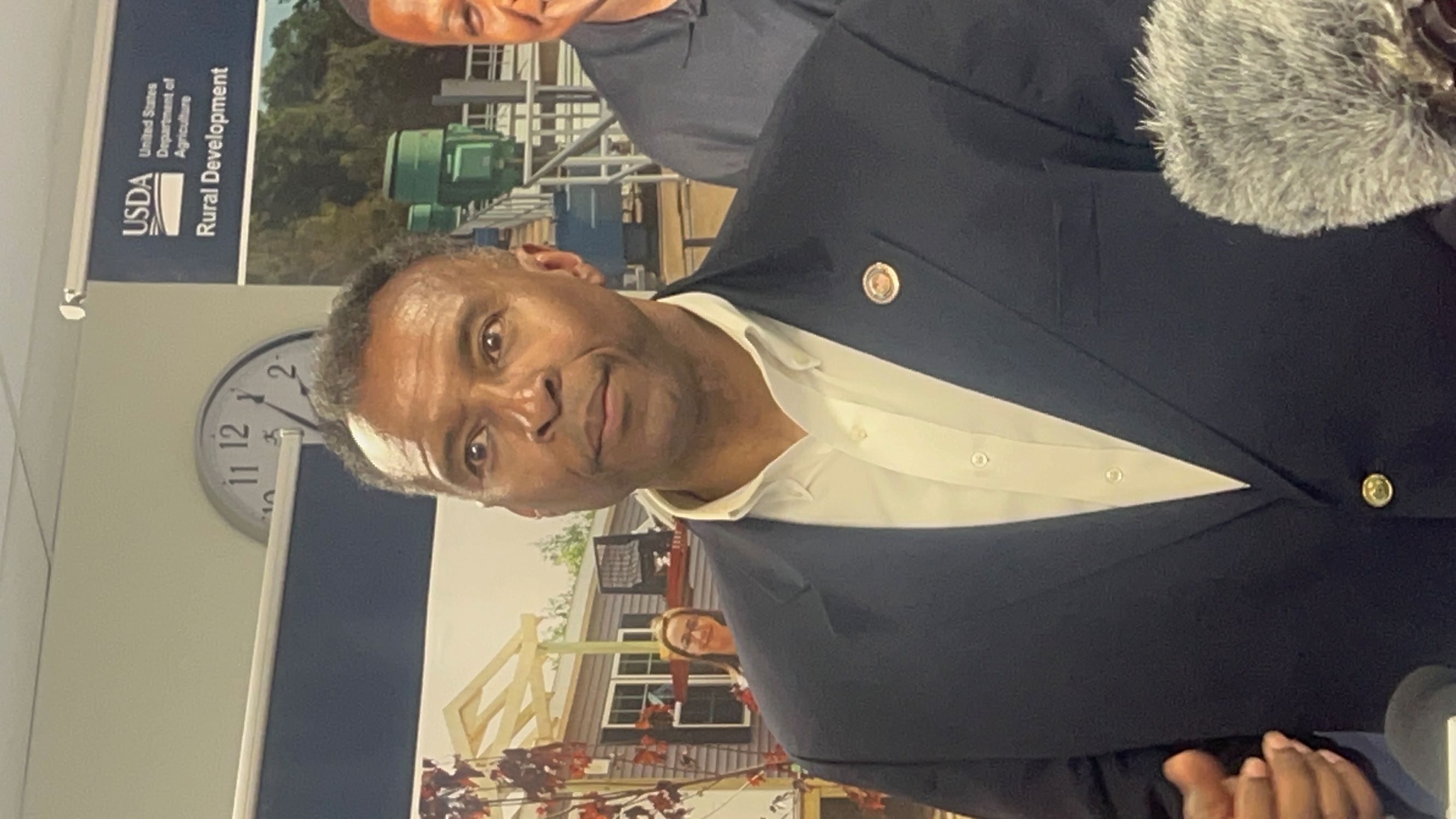
On hand for the ribbon cutting was the USDA Rural Development Undersecretary, Dr. Basil Gooden, along with the Nevada USDA Rural Development Director, Lucas Ingvoldstad. Gooden explained that the USDA has many economic development tools that the department deploys nationwide. “We believe that rural Americans are entitled to, and should have, the same types of opportunities as individuals in other parts of the country.” Pictured left: Dr. Gooden.
According to USDA Rural Development, the $672,950 investment in the Mobile Clinic was made via their Community Facilities branch, specifically through the Emergency Rural Health Care Grant program. “It is easy for us to look at the dollars we invest across rural America, it’s easy for us to name the projects we invest in across the country, but really… the work is done because of the people like you here today,” said Gooden, “Without you, we couldn’t do the work that we do.”
Gooden reported the current administration is focused on providing rural America with funding through the Inflation Reduction Act and ARPA – the American Rescue Plan Act, which is the most recent federal stimulus bill to aid public health and economic recovery from the COVID-19 pandemic and how the grant was funded. “Our agency should be evaluated not on the projects funded or on the dollars that go out,” remarked Gooden, “but on the impact that is made across the country.”
Chairwoman Williams-Tuni addressed their ongoing need for accessible medical care. “It has been a long-standing vision of the tribe…to adequately serve our remote locations with necessary healthcare,” said Williams-Tuni. “This marks a significant move forward for our tribal communities in that the progress we have made with this beautiful mobile unit allows us to provide adequate medical care in serving our remote communities who may otherwise have lesser opportunities to make the long commute.”
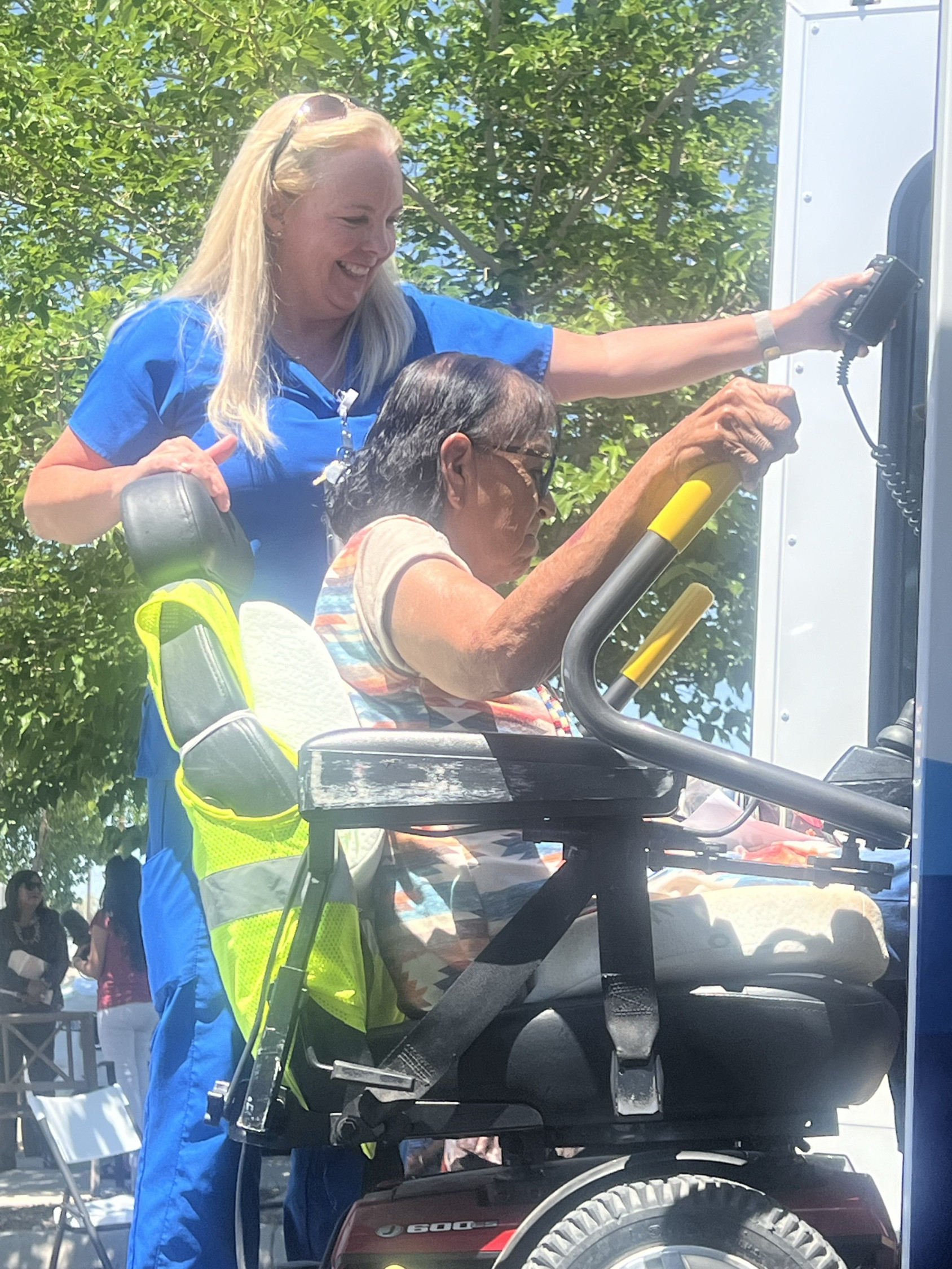
According to Joy Schultz, RN, and Dr. Chai, two of the essential Tribal Clinic staff members who man the Mobile Clinic, they began serving tribal members in remote locations during COVID-19. Soon, they discovered the need extended beyond vaccinations and began offering primary medical care from a parking lot under a pop-up tent—if they were lucky. Little to no privacy was offered, much less a safe, comfortable space for assessing patients' medical needs.
The mobile unit offers two separate private clinic rooms, one of which will soon serve as a dental room, where patients can see a dentist and hygienist for basic dental needs. It also has a bathroom and an elevator to help patients with limited mobility or those confined to wheelchairs or walkers. From inside the van, Schultz and Chai can also connect patients through telehealth to medical specialists.
In addition to Schultz and Chai, the mobile unit employs laboratory director Christine Baldwin, who also handles their medical technology. Audrea Menoliola is likewise on hand as a Patient Advocate/Case Manager to help tribal members gain access to valuable resources like Medicaid and navigate the broader healthcare system. Additionally, the Mobile Clinic also offers dementia and diabetes care coordinators.
Associate Director of Clinical Services Susan Bracamontes explained that the mobile clinic is at the FPST Senior Center on the Reservation once a month while also visiting the Lovelock Tribal Colony and Yumba Reservation once per month. Until more staffing can be secured, they are limited to the number of visits.
According to Bracamontes, FPST began their partnership before the idea of a mobile clinic took shape. They learned about available funds and began partnering with USDA Rural Development in 2022. To their knowledge, they are the only USDA partner that has opted for a mobile unit such as this one.
Dr. Chai, who has been with the Tribal Health Clinic for about four and a half years, shared the importance of being able to visit homebound, chronically ill, and terminal patients in remote locations. “I got tired of the traditional healthcare system,” said Chai, who believes the Tribal Health Clinic and the mobile unit are making a real difference.
Schultz, who shared some of the many services the unit and staff can offer patients, called it a “mobile miracle.” And she is not wrong. Through the Mobile Clinic, she, Dr. Chai, and the staff are saving lives, improving health and wellness locally and in remote areas in the region, and connecting people to valuable resources, including assistance with food, substance abuse services, medication access, dental care, and more.
.jpeg)
Bracamontes explained that many tribal patients sometimes do not have access to reliable transportation or even telephone service. The Mobile Unit offers an extension of services offered by the Tribal Clinic, including primary care, dental care, podiatry, chiropractic care, and audiology. Further, the clinic staff is committed to expanding traditional holistic health practices while making cutting-edge medical technology accessible and available. They take whatever they can on the road to assist patients in every way they can, even to their doorstep when needed.
Standing in for the Lovelock Paiute Tribal Chairman Alfred Happy II was City of Fallon Mayor Ken Tedford. He addressed the crowd and expressed his gratitude for the services the Mobile Clinic will provide to tribal members locally and beyond. Pictured right:
While that may be a way down the road, rural Nevada can take stock of the fantastic work the Tribal Clinic and Mobile Unit are doing to bring health and medical care to tribal members across the region.
Photos: Top, New Mobile Clinic, Center, Joy Schultz, RN, on lift that helps patients with limited mobility access the van. Bottom right: Joy Schultz, Christine Baldwin, and Susan Bracamontes in one of the mobile unit clinic rooms.


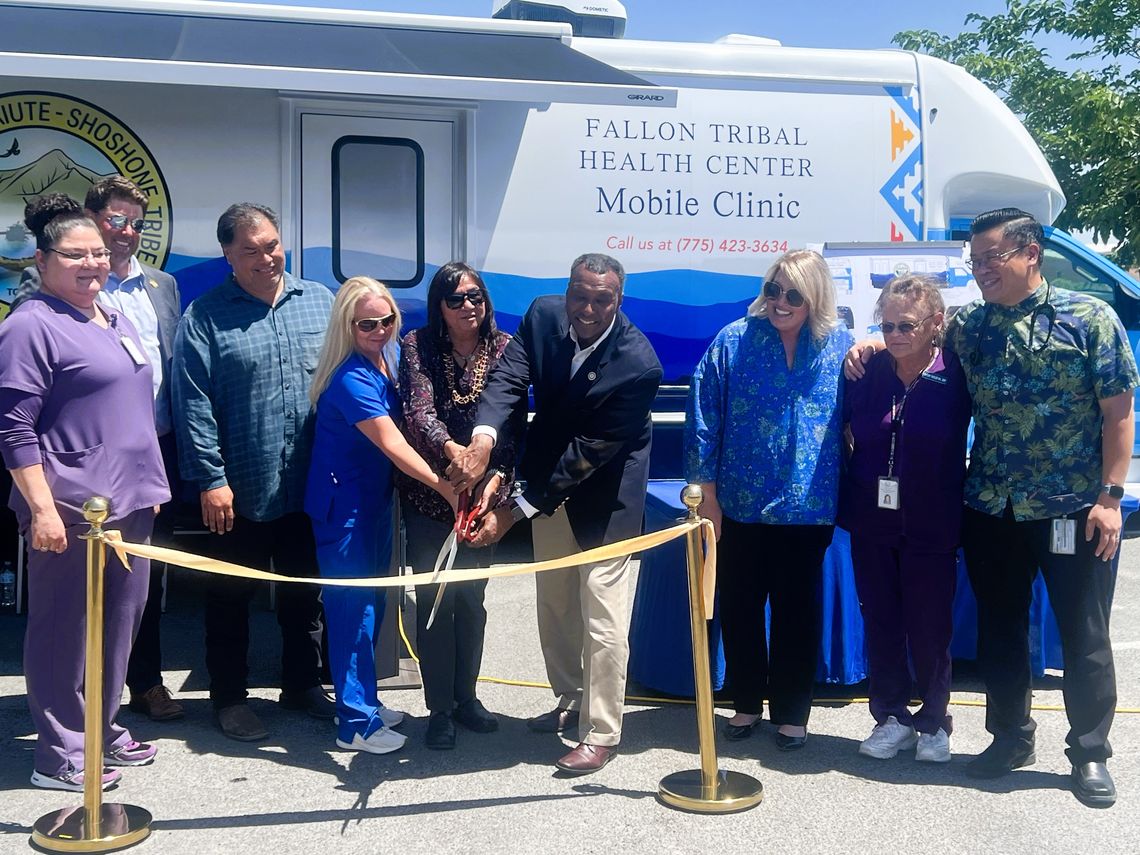






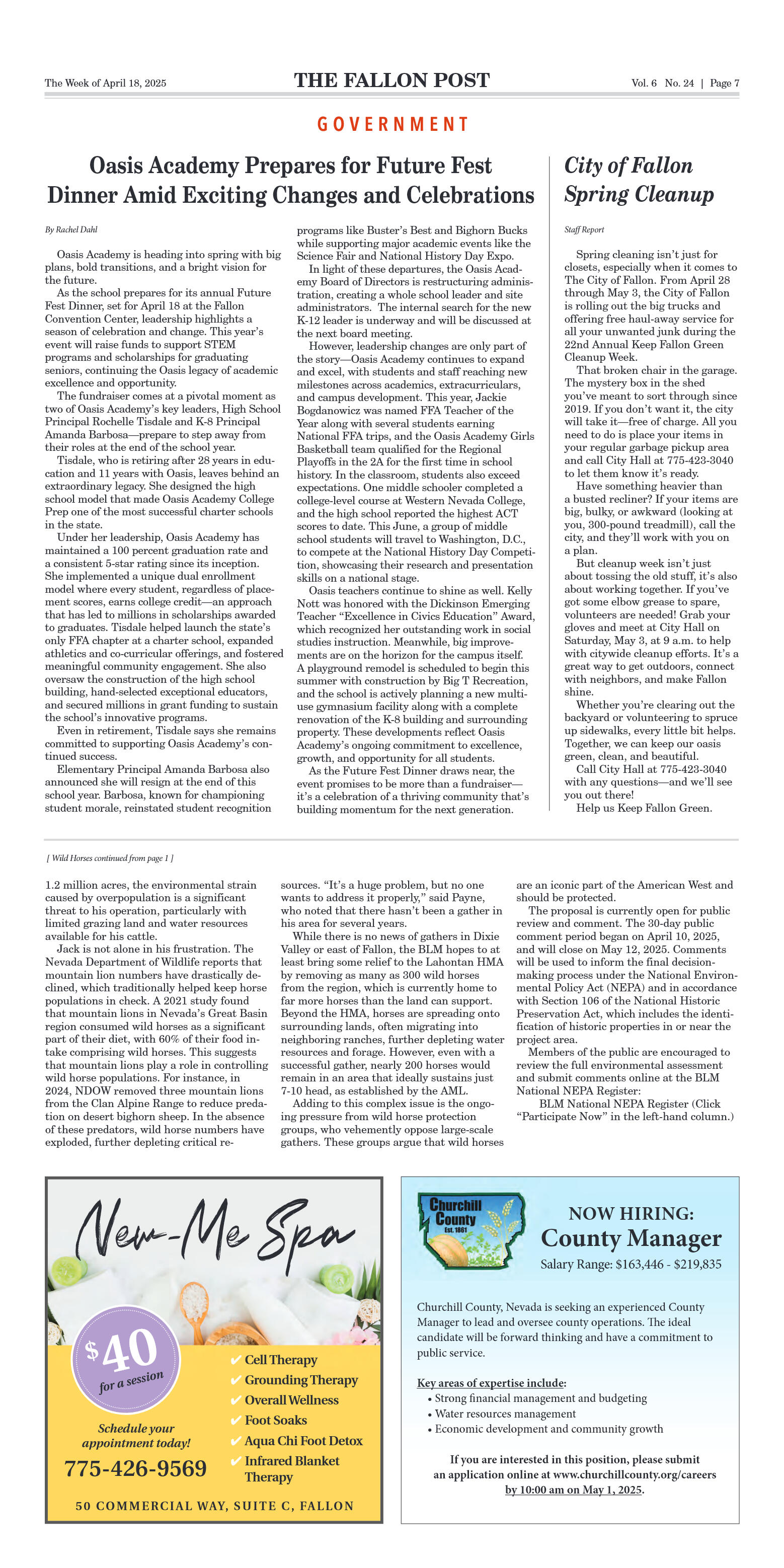

























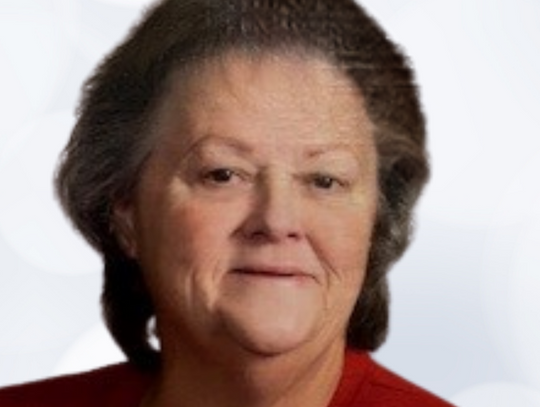
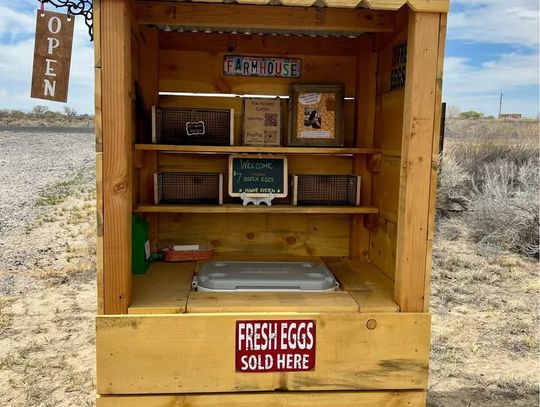
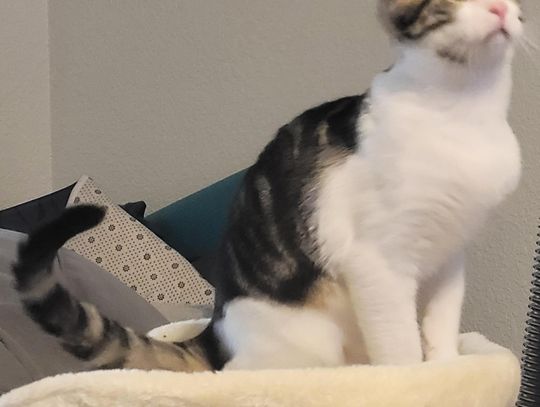
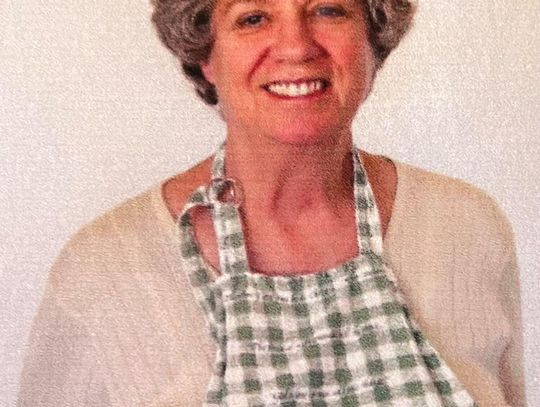



Comment
Comments